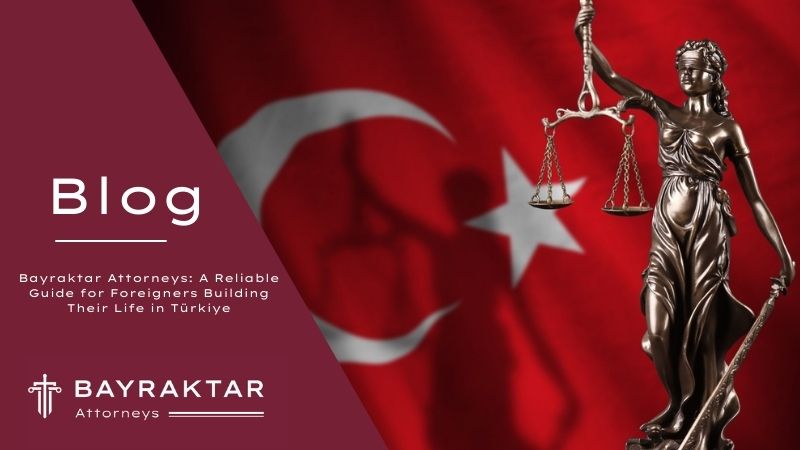
Responsibility and Obligations: Members of the Board of Directors of Joint Stock Companies
Turkish Commercial Code (TCC) stipulates that Joint Stock Companies are required to have two organs: the general assembly and the board of directors. In this article, we summarize the duties and obligations of board of directors members.
Obligations
The following are the nontransferable and necessary functions and powers of the board of directors:
- Senior management of the organization and issuing directives about them
- Determining the company’s management structure,
- Creating the appropriate order for financial planning as needed by the accounting and financial audit and the management of the firm,
- Nomination of directors and individuals with similar responsibilities and signing power, as well as their removal,
- Ensure that the management personnel are functioning in compliance with the laws, articles of incorporation, internal directions, and written instructions of the board of directors,
- Maintaining the share, board of directors’ resolution, and general assembly meeting and negotiation records, issuing the annual report and corporate governance statement and presenting them to the general assembly, preparing general assembly meetings and carrying out general assembly decisions,
- Notifying the court that insolvency exists.
According to TCC, board members have an objective duty of care to behave carefully and prudently and to safeguard the company’s interests by complying by honesty regulations. It implies a member of the board of directors must constantly carry out his or her responsibilities with the care of a careful management, which exceeds the ordinary duty of care.
Representation of the corporation: Board members shall represent the corporation in its dealings with shareholders and external parties.
Equal treatment of shareholders: Board members must treat shareholders equally within the bounds of the law and the articles of incorporation.
Members of the board are prohibited from attending meetings if their personal interests clash with those of the organization. This covers the personal interests of their lower and higher ancestors, spouses, blood relations, and in-laws, up to and including the third degree.
Restriction on doing transactions with the firm: Without the approval of the general assembly, board members may not conduct any transactions on behalf of themselves or anyone else with the company. Non-shareholder board members and their non-shareholder relatives, including their lower and higher ancestry, spouse, blood relations, and in-laws, up to and including the third degree, are barred from receiving financial loans from the business. The firm cannot provide warranties, guarantees, or collateral for the aforementioned parties, assume their liabilities, or assume their debts.
Prohibition of competition with the company: Board members may not engage in a commercial transaction that falls within the scope of the company’s business, either on their own behalf or on behalf of a third party, without the approval of the general assembly. Additionally, board members may not enter a company engaged in the same type of commercial business as the company as a limited partner.
Members of the board are prohibited from sharing any material deemed secret; they must maintain any company-related information discreet. It is considered as part of the loyalty obligation coming from the board members’ connection with the firm.
Board members are accountable for any losses they cause to the firm, shareholders, and creditors if they negligently breach their responsibilities emanating from the legislation and the articles of incorporation. The Turkish Commercial Code specifies the following liability situations:
Board members are liable for damages caused by the issuance, declaration, or participation in any false, fraudulent, phony, or untrue documents, prospectuses, commitments, statements, or guarantees relating to the establishment of the company, increase and decrease of its capital, merger, division, change of type, and issuance of securities, as well as concealment of the truth and other violations of the law.
Liabilities
Fake capital claims and knowledge of incapacity to pay: Board members are accountable for any damages and interest resulting from false statements about the capital of the firm and the approval of capital commitments by individuals who lack the capacity to pay.
Corruption in valuation: Board members who engage in corruption during the valuation of the capital in kind or the value of the firm and the items to be acquired are accountable for any resulting damages.
Crowdfunding: It is unlawful for board members to solicit funds from the general public for the purposes of creating a corporation or expanding its capital.
The scope and character of the liability
If more than one member of the board of directors is responsible to pay for the same loss, each member shall be jointly and severally liable with others to the extent that the damage may be imposed on him/her personally. The right to seek compensation from board members expires two years after the date the plaintiff discovers the harm and the responsible party, or five years after the date the conduct that caused the damage happened, whichever is later. Nonetheless, if this conduct is punishable and subject to a lengthier statute of limitations under the Turkish Criminal Code, then this statute of limitations applies to the compensation case as well. The court with jurisdiction over liability claims against board members is the commercial court of the company’s headquarters.







